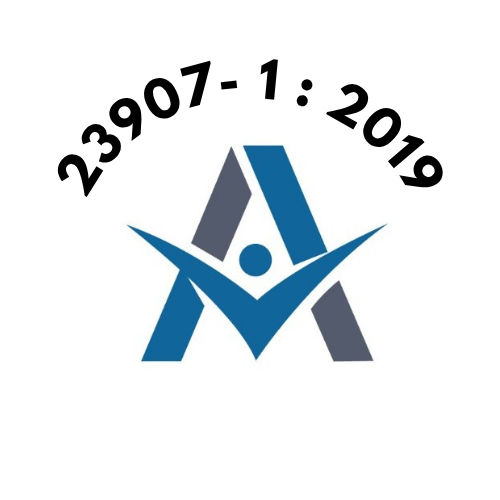ISO 23907-1:2019 Sharp injury protection

ISO 23907-1:2019 Sharps Container Compliance for Saudi and Omani Healthcare Facilities
ISO 23907-1:2019 specifies the international requirements and test methods for sharps containers, providing a critical framework for healthcare providers across Saudi Arabia and Oman. Compliance ensures the highest level of protection for medical staff and patients from injury and infection, directly supporting safety mandates from Saudi Arabia's General Authority of Food and Drug (SFDA) and Oman's Ministry of Health (MOH), in line with national healthcare objectives under Saudi Vision 2030 and Oman's Health Vision 2050.
Core Requirements for Gulf Healthcare Institutions:
-
Container Integrity: Utilize SFDA and Oman MOH-approved containers that are puncture-resistant and leak-proof, designed to withstand high temperatures common in the Gulf region.
-
Safety-Centric Design: Implement containers with mandatory one-way filling mechanisms and secure, irreversible locking lids to prevent needlestick injuries.
-
Standardized Labeling: Apply universal biohazard symbols and multilingual (Arabic/English) warnings as per GCC medical waste management protocols.
-
Performance Validation: Ensure containers meet rigorous test standards for durability and safety, required for certification by national health authorities.
Strategic Implementation Areas:
-
Hospital Networks: Deploy standardized containers in public health facilities like King Khalid Hospitals and Oman's Royal Hospital network.
-
Outpatient Clinics: Ensure safety in high-throughput facilities, including those under Saudi Arabia's Seha platform and Oman's primary health centers.
-
Specialized Units: Protect staff in high-risk areas such as dialysis centers, oncology wards, and emergency rooms.
-
Vaccination Campaigns: Manage sharps waste safely at large-scale national immunization drives.
Certification & Compliance Benefits:
-
Regulatory Adherence: Meet SFDA Medical Devices Regulations and Oman MOH Circulars on Sharps Management, avoiding compliance penalties.
-
Enhanced Worker Safety: Drastically reduce needlestick injuries and exposure to Bloodborne Pathogens (BBPs) among healthcare professionals.
-
Infection Control: Prevent the spread of healthcare-associated infections (HAIs) by securely containing contaminated sharps.
-
Operational Efficiency: Streamline waste segregation and disposal processes, reducing handling costs and logistical complexity.
-
Risk Mitigation: Lower institutional liability and insurance premiums by demonstrating adherence to international best practices.
KSA-Oman Implementation Priorities:
-
National Safety Integration: Align sharps management protocols with the Saudi National Infection Prevention and Control (IPC) Guidelines and Oman's Patient Safety Framework.
-
Staff Training Programs: Implement mandatory training on new container systems for nurses and waste handlers in both countries.
-
Supply Chain Standardization: Partner with distributors certified to provide GCC-approved sharps containers.
-
Waste Stream Optimization: Integrate certified containers into existing medical waste logistics managed by national providers.
Sector Applications:
-
Public Health Sector: Ministry of Health hospitals, primary care centers, and mobile clinics.
-
Private Healthcare: Major hospital groups like Dr. Sulaiman Al Habib Medical Group and Apollo Hospitals in Oman.
-
Laboratory Services: Diagnostic labs processing samples under high biosafety standards.
-
Dental Practices: Private and public dental clinics across major cities and emerging economic zones.
ANS Compliance Assurance Process:
-
Gap Analysis: Assess current sharps containers and procedures against SFDA and Oman MOH medical device and waste management guidelines.
-
Compliance Audit: On-site verification by auditors with expertise in GCC healthcare safety and environmental standards.
-
Surveillance & Support: Ongoing support and bi-annual reviews to ensure continuous compliance with evolving regulations.
